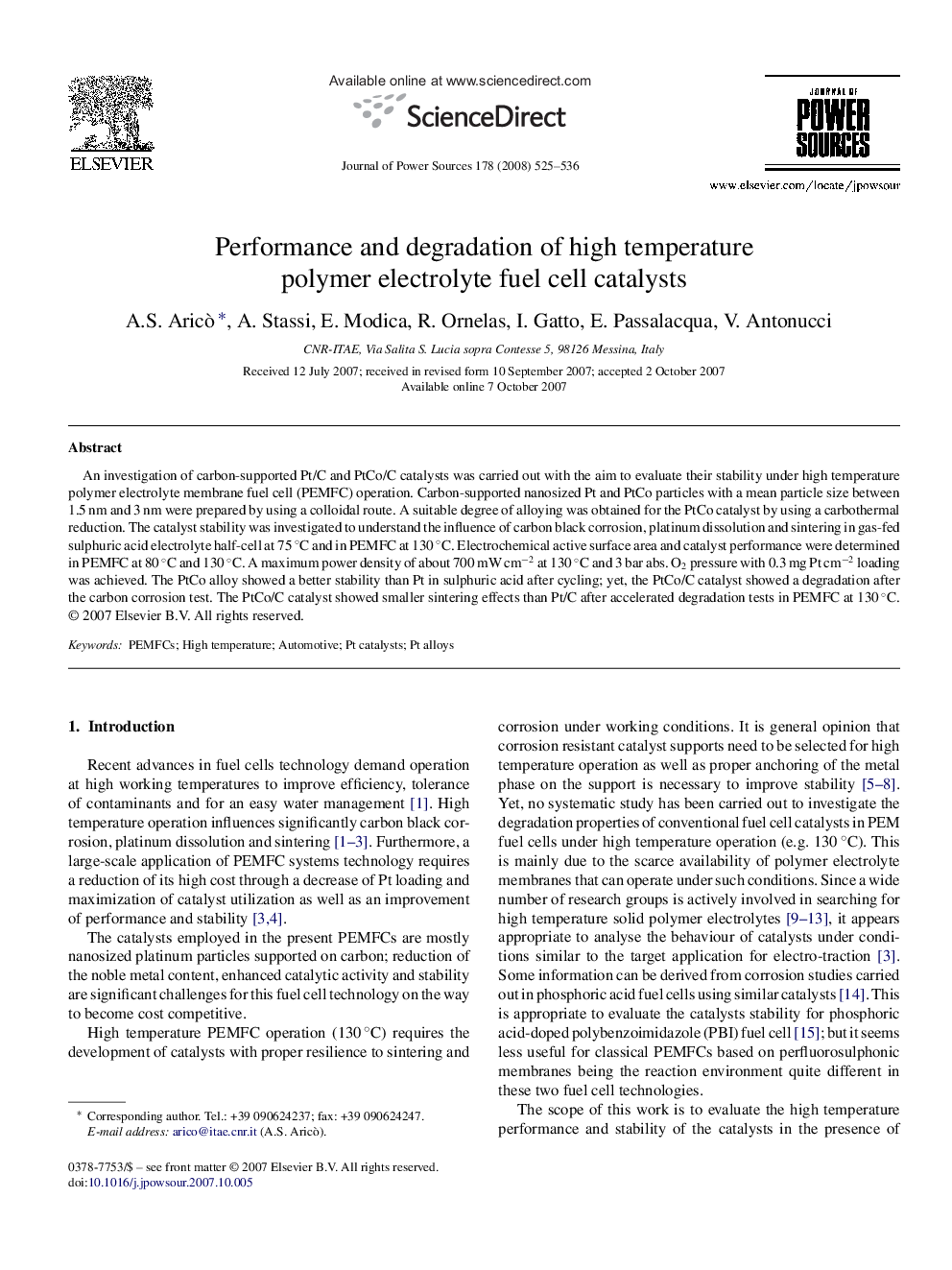| Article ID | Journal | Published Year | Pages | File Type |
|---|---|---|---|---|
| 1290711 | Journal of Power Sources | 2008 | 12 Pages |
An investigation of carbon-supported Pt/C and PtCo/C catalysts was carried out with the aim to evaluate their stability under high temperature polymer electrolyte membrane fuel cell (PEMFC) operation. Carbon-supported nanosized Pt and PtCo particles with a mean particle size between 1.5 nm and 3 nm were prepared by using a colloidal route. A suitable degree of alloying was obtained for the PtCo catalyst by using a carbothermal reduction. The catalyst stability was investigated to understand the influence of carbon black corrosion, platinum dissolution and sintering in gas-fed sulphuric acid electrolyte half-cell at 75 °C and in PEMFC at 130 °C. Electrochemical active surface area and catalyst performance were determined in PEMFC at 80 °C and 130 °C. A maximum power density of about 700 mW cm−2 at 130 °C and 3 bar abs. O2 pressure with 0.3 mg Pt cm−2 loading was achieved. The PtCo alloy showed a better stability than Pt in sulphuric acid after cycling; yet, the PtCo/C catalyst showed a degradation after the carbon corrosion test. The PtCo/C catalyst showed smaller sintering effects than Pt/C after accelerated degradation tests in PEMFC at 130 °C.
